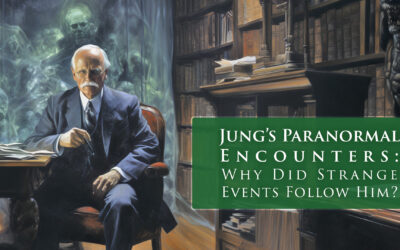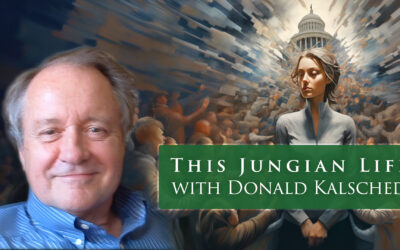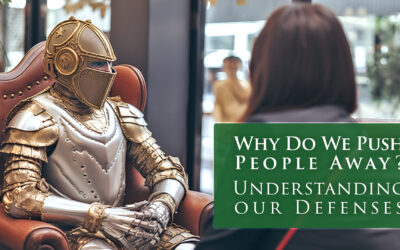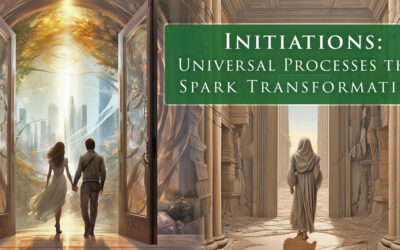OUR podcast
Subscribe to the show in your favorite application and never miss an episode!
APPLE PODCASTS | SPOTIFY | PANDORA | PLAYER FM | TUNE IN
JUNG’S PARANORMAL ENCOUNTERS: Why did strange events follow him?
Many of us have uncanny coincidences like thinking of a friend at the exact moment they ring us on the phone, but what about physical things breaking apart for no reason or luminous apparitions at our bedside? We often explain them away to reduce our anxiety, but Jung found them fascinating. He maintained a scientific attitude while accepting strange phenomena he could not explain. Eventually, he created a psychology of radical acceptance that creates space for the unexpected, including each person’s unique soul.
LOW ENERGY: Where can we source the drive to take action?
Many people just can’t rally to do what’s necessary and improve their lives. Is it possible they just don’t carry much vitality or is some inner conflict blocking their access? We share personal stories of ‘energy loss,’ and offer insights into purposelessness. Jung tells us inner energy flows according to its own laws but if we can’t harness it?
REUNIONS: Is there value in remembering our younger selves?
We organize reunions because we yearn to reconnect with old friends, recall shared experiences, and reignite a sense of community. We all need meaningful social contact and enjoy nostalgia. While coming together can feel alluring, actually attending the event may evoke a spectrum of ambivalent feelings. We’re likely to feel judged for our achievements, appearance, or socioeconomic status, especially compared to our peers. Transitioning into adulthood is often tumultuous, marked by intense negative experiences, and revisiting those periods can be daunting. Attending reunions can inadvertently reactivate traumatic memories, making the decision to participate a delicate one for many of us. Seeing a former bully or revisiting a dorm can bring back the anxiety, fear, loneliness, or sadness of those formative years. We might even find ourselves sweating or feeling trapped. Recognizing and validating our fears is crucial.
Donald Kalsched – Can running our minds like a democracy save us?
Jung discovered our inner world is populated by various imaginal figures representing powerful psychological forces. If we treat our minds as democratic spaces, it can safeguard us from internal and external authoritarian influences.
Why Do We Push People Away? Understanding our Defenses
Defense mechanisms function as unconscious psychological strategies we deploy to navigate reality and sustain a consistent self-image. They act as a shield, guarding against feelings of anxiety, shame, and vulnerability. They are feeling states that prompt us to avoid contact and trick us into thinking they protect us against emotional harm.
Selkie Folklore: Should we force soul to serve us?
The Selkie swims ashore at night, sheds her seal skin, hides it, and delights in her human form. In Celtic lore, she is the wild feminine soul, a creature of land and sea, innocent and beautiful, who cannot thrive in domesticity.
INITIATIONS: universal processes that spark transformation
The archetype of Initiation is primordial, and its force shapes our transformative transitions. For Jung, this change reshapes spiritual, emotional, intellectual, behavioral, and social dynamics.
Informed by his anthropological studies, Jung understood the necessity of formal ceremonies, accentuating their role in facilitating separation from parental influences and integration into the adult community. These rites fulfilled archetypal developmental demands to mark a clear break from childhood and foster a deeper connection with the adult community, often through physical and symbolic rites. On a cultural level, these ceremonies helped contain unconscious forces that made collaborative culture possible.
THE BARBIE MOVIE: Can it Dismantle an American Myth?
In 1959, the Barbie doll hit the market and created a stir. American mothers objected to her sensuous form, so Mattel marketed it directly to children, a tactic never used before, and it worked. The maternal archetype of Hera, sentinel of the social order, goddess of childbirth, and protectress of the home, was supplanted. Aphrodite, the captivating goddess exuding an aura of beauty, desirability, and persuasive allure, had arrived.










